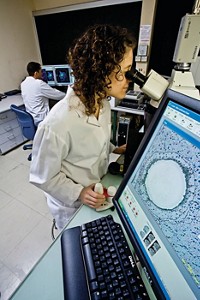Advertisement
Grab your lab coat. Let's get started
Welcome!
Welcome!
Create an account below to get 6 C&EN articles per month, receive newsletters and more - all free.
It seems this is your first time logging in online. Please enter the following information to continue.
As an ACS member you automatically get access to this site. All we need is few more details to create your reading experience.
Not you? Sign in with a different account.
Not you? Sign in with a different account.
ERROR 1
ERROR 1
ERROR 2
ERROR 2
ERROR 2
ERROR 2
ERROR 2
Password and Confirm password must match.
If you have an ACS member number, please enter it here so we can link this account to your membership. (optional)
ERROR 2
ACS values your privacy. By submitting your information, you are gaining access to C&EN and subscribing to our weekly newsletter. We use the information you provide to make your reading experience better, and we will never sell your data to third party members.
Business
Life Support For Montreal R&D
Biotech: Industry, government form nonprofit research hub
by Lisa M. Jarvis
November 29, 2012
| A version of this story appeared in
Volume 90, Issue 49

As drug companies move their R&D operations out of Quebec in rapid succession, Canadian authorities are trying to sustain the region’s life sciences community. In the latest effort, the government, along with AstraZeneca and Pfizer, is committing $100 million over five years to establish the NeoMed Institute, a nonprofit research center in Montreal.
NeoMed aspires to bridge the gap between basic research and early clinical studies for drug candidates by offering universities and biotech start-ups funding and services. The hope is to eventually restore some of the hundreds of R&D jobs the region has lost in the past two years. AstraZeneca and Pfizer, along with any other big pharma partners that join NeoMed, will have an option to license molecules developed there.
AstraZeneca is kicking in its former neuroscience research facility, which was focused on developing small molecules, along with $5 million and intellectual property for three potential pain drugs. The firm values its input at $35 million.
Pfizer will chip in $3.5 million, and the Quebec government has earmarked $28 million for the project. The Canadian government and other pharma partners are expected to make up the balance of the $100 million.
AstraZeneca shut down the Montreal site earlier this year as part of an overhaul of its R&D organization that included adopting a “virtual” model for neuroscience research. Some 132 scientists were employed at the site.
Alf Larsson, vice president of special projects for AstraZeneca’s R&D operations, led his firm’s participation in NeoMed as head of a team tasked with finding “a new opportunity” for the Montreal assets. When Max Fehlmann, former CEO of the Quebec Consortium for Drug Discovery, approached AstraZeneca with the idea, “it made absolute sense to me to fill the gap between academic research and pharma,” Larsson says.
The research center will provide minimal relief for the victims of pharma-related R&D job losses in the Montreal region. In addition to AstraZeneca, Merck & Co., Johnson & Johnson, and Boehringer Ingelheim all have shuttered R&D sites or significantly cut the number of scientists they employ in Quebec.
Initially, NeoMed will employ 15 to 20 scientists—many of whom used to work for AstraZeneca—although the partners say up to 100 researchers could eventually work there.



Join the conversation
Contact the reporter
Submit a Letter to the Editor for publication
Engage with us on Twitter